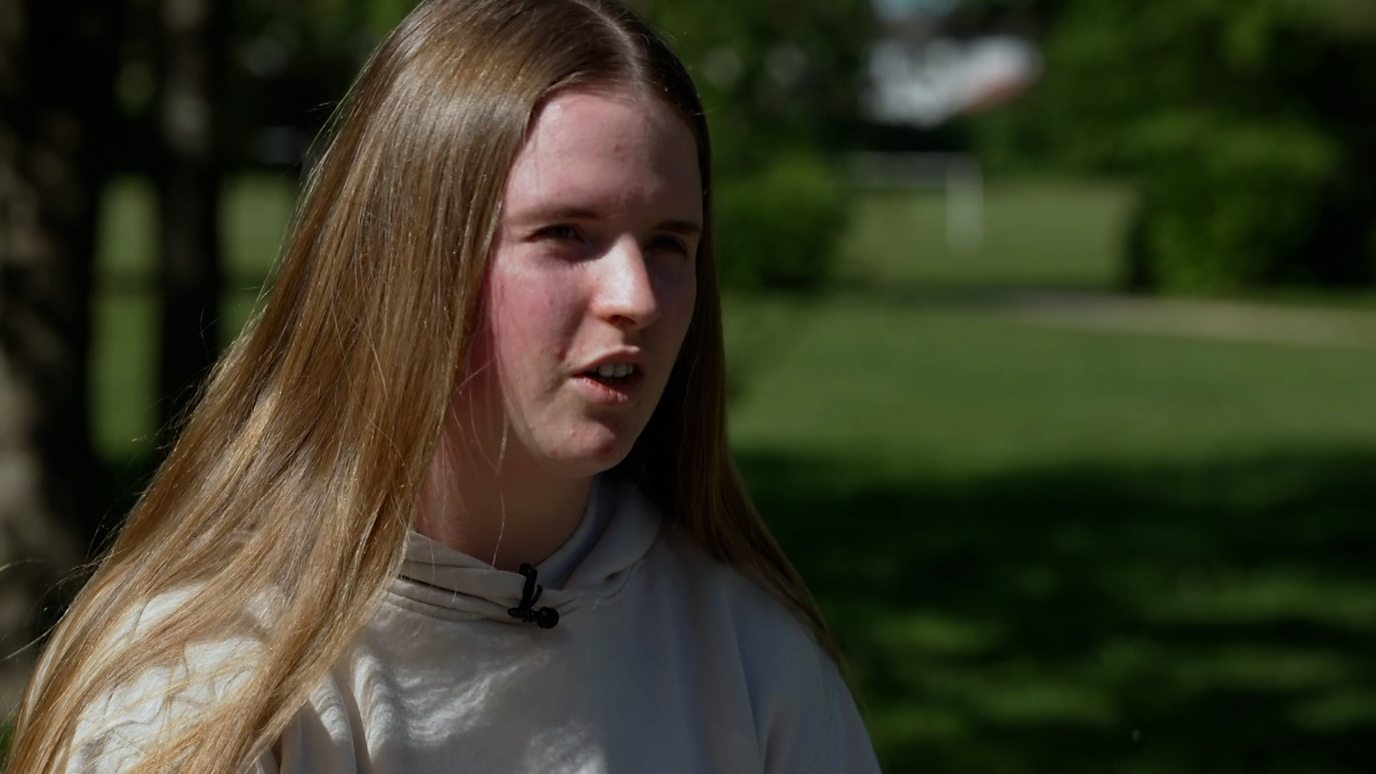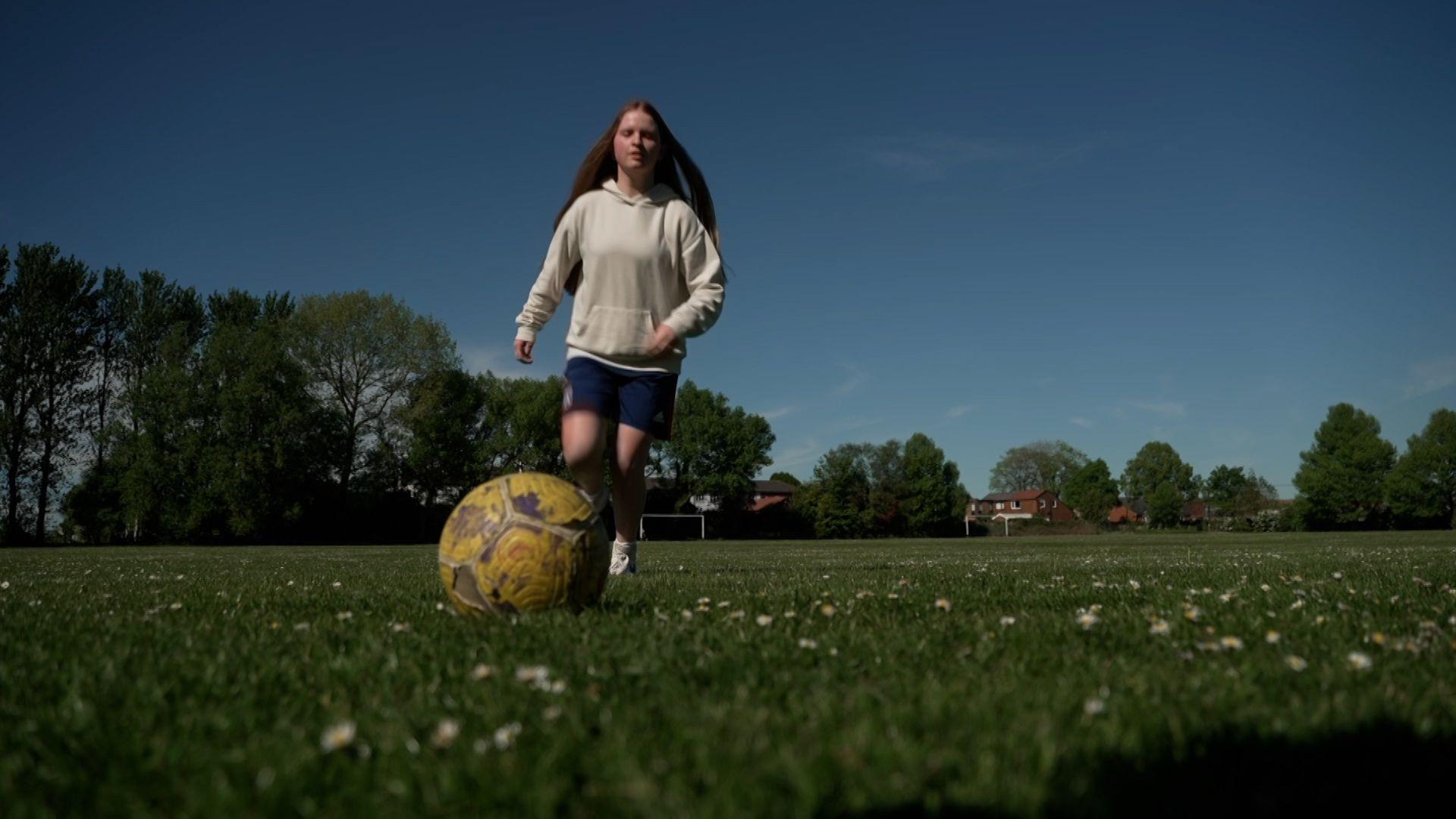
Teen Footballer Banned Over Trans Comment Calls for FA Apology
Cerys Vaughan speaks out after case dropped and ruling overturned
In a case that has stirred debate far beyond the grassroots pitch where it began, a young amateur footballer who was suspended for comments made to a transgender opponent is now demanding an apology from the Football Association. Cerys Vaughan, 18, has broken her silence after disciplinary proceedings against her were quashed and ultimately dropped. The teenager, who was just 17 at the time of the incident, says the saga has taken a toll on her life — and believes the FA owes her more than just a quiet resolution.
A Question, a Complaint and a Ban
The incident dates back to July 2024, when Vaughan was playing in a pre-season friendly for her local women’s team in Lancashire. Just before the whistle blew, she noticed something she felt warranted a question. Seeing a player she perceived to be male, Vaughan approached and asked, “Are you a man?”
The player replied that she was transgender and offered to speak after the game. But Vaughan, still uncertain, went to the referee and asked if the player was eligible to participate. “I assumed it would be a women’s game, and that’s why I was confused,” Vaughan told BBC Sport in her first public interview. “I thought they’d brought a mixed team.”
That question set off a chain of events that would lead to a formal complaint through the anti-discrimination group Kick It Out and a subsequent charge from the Lancashire FA. Vaughan was accused of using “abusive and/or indecent and/or insulting” language — a charge aggravated by a reference to gender reassignment.
According to case documents, Vaughan allegedly said: “That’s a man,” “Are you a man?” and “Don’t come here again,” or something similar. Vaughan denies the last remark entirely and maintains her intention was never to offend, but rather to understand whether FA rules had been followed.
The Fallout and the Fightback
After a hearing, Vaughan was handed a six-match ban, with four matches suspended, and ordered to complete an online equality and diversity course. But she wasn’t ready to accept the ruling quietly.
“I was really upset,” she admitted. “It got put on my record that I’d been accused of misconduct, and I didn’t want that to stay there. I knew I wasn’t guilty, so I appealed it.”
Her cause began to attract attention. Former FA chairman Lord Triesman raised the matter in the House of Lords, describing the handling of Vaughan’s case as “shabby.” The Free Speech Union backed her appeal, and a group of women’s rights protesters demonstrated outside Wembley Stadium during an England men’s match.
Appeal Board Overturns FA Ruling
In February 2025, the FA’s own appeal board sided with Vaughan. It concluded she hadn’t received a fair hearing and expressed concern about the original disciplinary panel’s handling of the case.
The board noted Vaughan had become distressed while giving evidence and that the commission prematurely ended her testimony, preventing her from fully explaining herself. “That was unfair to Cerys,” the appeal board stated, adding that her explanation of events had not been properly considered.
The original decision was quashed, and the case was referred for a fresh hearing. But that never took place. The complainant chose to withdraw from the process, and the case was closed entirely.
“I Want an Apology“
With her name cleared and the case dropped, Vaughan says she feels vindicated — but not satisfied. She’s now calling on the FA to publicly apologise.
“They basically admitted that I was right in what I did,” she said. “If the new ruling was in place when I asked the original question, I never would have been punished. I’d like the FA to apologise for the way they treated me. It was a very long, drawn-out case, and there was no reason for it to be.”
Vaughan is currently being assessed for possible autism and believes this may help explain why she asked the question so directly. “I wasn’t afraid to ask,” she said.
A Changing Policy Landscape
In a significant shift, the FA announced in April that from June 1st, 2025, transgender women will no longer be allowed to compete in women’s football, citing a need to align with legal definitions based on biological sex. The decision follows a UK Supreme Court ruling which clarified that, in law, “woman” refers to biological sex.
For Vaughan, the new rules validate her actions. But not everyone agrees. Natalie Washington of Football v Transphobia criticised the policy as a “de facto ban” on trans women in the game.
“It’s a lot of attention on a very small number of people who aren’t causing a problem,” Washington said. “It marginalises the trans community.”
There are currently only 28 transgender women registered in English football, none of whom play professionally.
A Wider Conversation on Fairness and Inclusion
Vaughan makes no apology for her views. Asked if she has sympathy for trans players now unable to compete in the women’s game, she said simply: “No.”
“I also have a love for the game. I compete with other women. If biological males get involved, that makes the experience worse for everyone else because then it’s not an even game.”
Pressed on whether reduced testosterone levels should allow transgender women to compete, Vaughan pointed to lingering advantages from male puberty — height, bone density, and muscle mass — as reasons why she believes the playing field remains uneven.
“It’s unfair. I’m at greater risk of injury. If you’ve gone through male puberty, you’ll always have the biological advantage.”
FA Caught in the Crossfire

Cerys Vaughan playing football Trans
FA chief executive Mark Bullingham has acknowledged that the decision to change the rules was not taken lightly. “We understand how difficult this decision will be for people who want to play football in the gender by which they identify,” he said.
But for Vaughan, who believes she was wrongly vilified, the FA’s decision came too late.
“The FA put me through so much stress, and in the end, it was pointless,” she said. “They dropped the charges. They cleared my name. But I’m still waiting for them to say sorry.”






















































There are no comments yet. Be the first to comment!